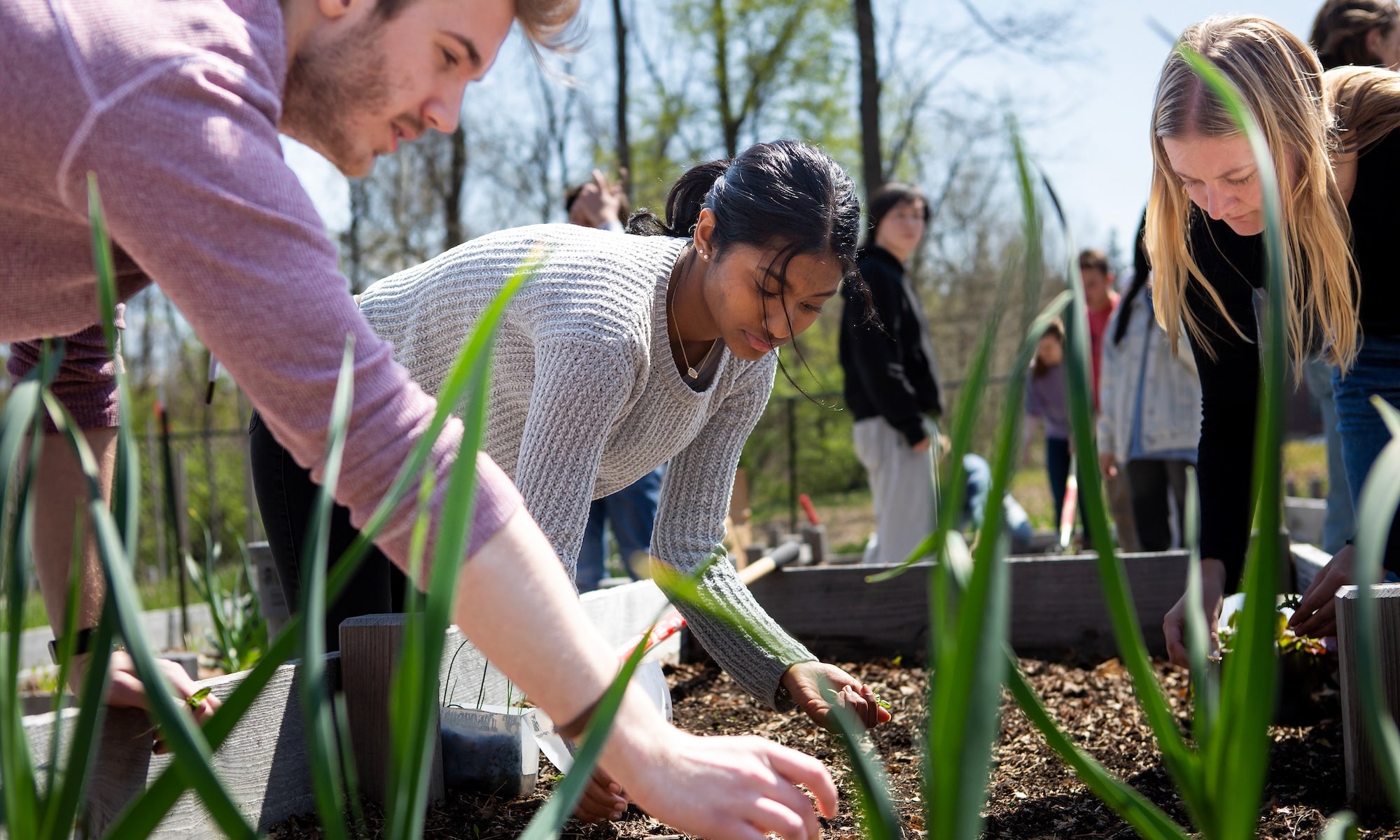Denison University is taking another step toward meeting its net-zero carbon goal with the help of a grant from Ohio EPA that provides funding for two new sustainability initiatives: an innovative system that converts food waste and a high-capacity cardboard baler that will increase campus recycling.
The grant awards $89,447, and the college will provide 25% matching funds toward the purchase of a BioNova Model C3 Biodigester and Bramidan B5 Wide Vertical Baleres.
It’s a win-win scenario, says David English, vice president of finance and management. “We anticipate processing 400 pounds of waste per day, which will be diverted from landfills, and the organic end-product will also enhance Denison’s award-winning landscaping. We’ll be able to replace at least half of the synthetic fertilizers now in use. We are grateful to the Ohio EPA for giving us this opportunity.”
The baler will accept cardboard boxes that haven’t been broken down, saving employee time, increasing recycling, and helping to further reduce waste, says Michael Supp, Denison’s director of facilities operations. He estimates the initiative will divert material from landfill and increase the amount of cardboard captured, baled, and sent to a third-party recycler by 50%.
Denison’s ongoing commitment to sustainability continues to yield results. Since establishing its climate commitment in 2010, the college has made significant progress toward its goals, including reducing its carbon footprint by more than 50% through investments in energy alternatives, a switch from coal to natural gas at the Denison heating plant, and efficiency projects.
In addition, the university has invested in solar arrays that provide 2.9 million kWh of power to campus — about 15% of its annual electricity. Denison is one of the first colleges in the nation to create a green revolving fund dedicated to energy efficiency, resulting in approximately $5 million in energy-efficient projects across campus.
Other initiatives include establishing a campus arboretum, using LEED standards in all building projects, and investing in locally sourced food.
“I am proud of our progress toward our goals,” King says. “Students are a big part of our work, and our liberal arts curriculum develops a critical thinking and creative problem-solving mindset that is both practical and forward-thinking. We continually research and learn about new developments and are poised to take advantage of opportunities, such as this important partnership with the Ohio EPA.”
